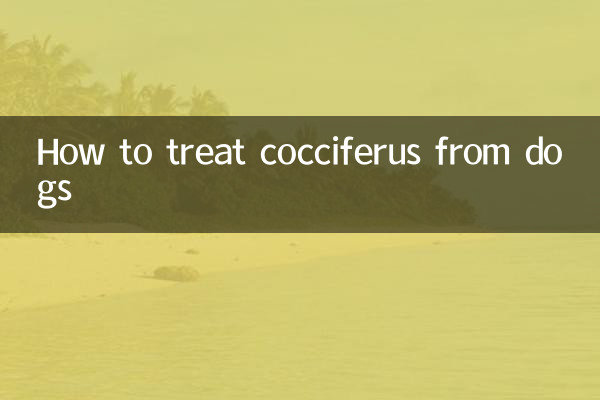How to treat cocciferus from dogs
Recently, pet health issues have become one of the hot topics, especially the frequent occurrence of dogs with coccidiosis. Coccidius is a common parasite that can cause diarrhea, weight loss and even more serious health problems in dogs. This article will introduce in detail the treatment of coccidius in dogs and provide structured data to help pet owners better deal with this problem.
1. What is coccidius?

Coccidia is a single-celled parasite that mainly parasitizes in the intestines of dogs. Puppies, immunity-deficient dogs, or dogs living in unsanitary environments are more likely to be infected. Coccidiosis is transmitted through feces, and after infection, it may cause symptoms such as diarrhea, vomiting, and loss of appetite in the dog.
2. Symptoms of dogs infected with coccidiosis
If your dog experiences the following symptoms, it may be infected with coccidiosis:
| symptom | describe |
|---|---|
| diarrhea | Feces may contain blood or mucus |
| Vomit | Frequent vomiting or loss of appetite |
| thin | Significant weight loss |
| Depressed | Reduced activity, listless |
3. How to diagnose coccidiosis infection?
Confirmed coccidiosis infection requires a veterinary examination. Usually, a veterinarian will collect a dog's feces sample for microscopy to confirm whether there is a coccidium ovary sac. Here are common diagnostic methods:
| Diagnostic method | illustrate |
|---|---|
| Fecal examination | Observation of coccidius ovum in feces through microscope |
| PCR detection | More accurate molecular biological detection methods |
| Clinical symptoms assessment | Comprehensive judgment based on dog symptoms |
4. Treatment methods for dog coccidiosis
Once diagnosed, the veterinarian will develop treatment plans based on the dog's age, weight and infection level. Here are common treatments:
| Treatment method | illustrate |
|---|---|
| Sulfonamide drugs | For example, sulfamethazine is commonly used to treat coccidiosis infection |
| Toquzhuli | A highly effective anticoccidial drug for young dogs |
| Supportive Therapy | Replenish electrolytes and nutrients to prevent dehydration |
| Environmental cleanliness | Thoroughly clean the living environment of your dog to prevent repeated infections |
5. How to prevent coccidiosis infection?
Prevention is better than treatment. Here are some suggestions for preventing coccidiosis infection:
| Preventive measures | illustrate |
|---|---|
| Regular deworming | Regular use of deworming medications as recommended by veterinarians |
| Keep hygienic | Clean dog feces in time to avoid environmental pollution |
| Food safety | Avoid dogs eating raw meat or uncleaned foods |
| Strengthen immunity | Provide balanced nutrition to enhance dog resistance |
6. Summary
Infection with coccidiosis is a common health problem, but through timely diagnosis and treatment, the condition can be effectively controlled. Pet owners should pay close attention to the health of their dogs and conduct regular deworming and environmental sanitation management. If you find suspected symptoms of the dog, be sure to seek medical treatment as soon as possible to avoid worsening of the condition.
I hope this article can help you better understand the treatment and prevention methods of dog coccidiosis and provide your dog with a healthier growth environment!

check the details

check the details